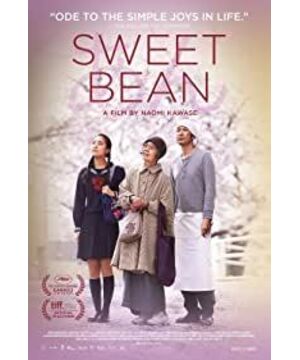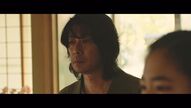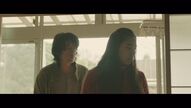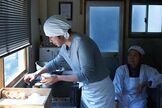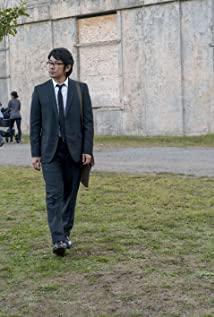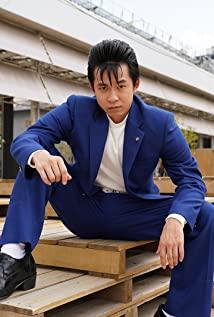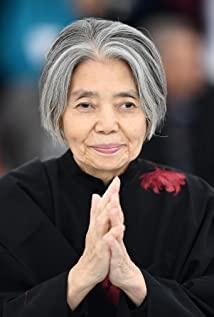I thought it was a movie about food making, but it wasn't.
The film uses Dorayaki as a borrowed item to trigger a story about the warmth and coldness of the world, involving human care, social identity and the meaning of life. The three main characters in the film, Tokue, Sentaro, and Wakana, are at different stages of life, but they all have their own problems. Tokue is old and has entered the end of his life. At the same time, as a leprosy patient, he has been isolated and treated since childhood and is out of touch with society. In Sentaro's melancholy eyes, there is also a history of his own hidden. The dispute caused serious injuries. She had been in prison for a period of time and owed huge debts. She had no choice but to become an agent manager in Dorayaki. Wakana, a junior high school student, and a single-parent family, chose to drop out of school because of financial reasons. The three people came together because of the dorayaki. By chance, they had a life-enlightening experience together. Tokue is an old man with a deep accumulation of dessert making. According to her, red bean paste is the soul of dorayaki, and this has never been taken seriously by Sentaro. As a person who hates sweets, his current job is only his last resort. Choose it. The film uses the red bean paste production process to show Dejiang's attitude towards life, respect for life, desire for youth, pursuit of the essence of life, and happiness. All of this is subtly affecting Sentaro. Although he knows the society’s inherent prejudice against leprosy, he has always insisted on retaining Tokie to work in the store, but although he does not express, he silently bears the pressure given by the proprietress, and the business in the store is good. Dejiang saw all this, but they didn't say anything to each other. This section is where the film is handled better. The tacit understanding between the two can be seen as the care between similar people, and this care does not resort to words. Sentaro is facing potential social pressure and setting up a small shop. Operating without care is the protection that Dejiang can do, and what Dejiang taught him is patience and love for life.
The most important motif of the film is the meaning of life. Dejiang’s love for cherry blossoms, the explanation of red bean’s life experience, and her instinctive upward smile, gently beckoning to the swaying cherry tree branches, all this reveals that an old man is right The yearning for beauty and the love of life. At the same time, in the setting of the ages of the characters, the film chooses three stages of old age (Tokue), middle age (Sentaro) and youth (Wakana). From young to old, it is a natural sequence, which may be a hint of life. In addition, the film is shot in time according to the seasons, spring, summer, and autumn, corresponding to the age of the characters, from beginning to end, from blooming flowers to autumn leaves fluttering, reflecting the four seasons of life with natural changes , Perhaps this is not a deliberate arrangement, but it seems to arouse the perception of the meaning of life everywhere.
Remember, when De Jiang was about to die, he left his last words of life through the tape recorder. There is a sentence, we are here to see the world with our own eyes and appreciate the charm of it. Therefore, although we can't become anything, we still have to live. meaningful. This touching sentence was addressed to Sentaro. From the beginning, when she accidentally saw his melancholy eyes, she felt a sense of deja vu. That was what she had, the eyes that lacked communication with the outside world in a closed room for a long time. She cherishes each other, thinking that this is a certain arrangement of fate, and want to tell this man in the last time of life, there is actually something that can't be forgotten, can't let go, to feel, to love, not to sink into self. At the end of the film, Sentaro set up a small food stall in the park and re-selled dorayaki. The autumn cherry blossoms opened up. He finally put aside his psychological shackles and shouted, "Dorayaki, come here. Dorayaki, delicious. Dorayaki,
let’s have a copy!” Let’s talk about Waka, after all, she is the third most important character in the film. As a girl who chose to drop out before graduating from junior high school, she has not accumulated too much in life and still has a lot of unknown things. Curious, she is silent and not good at words, but she also has the little life that a girl should have. She likes canaries, wants to find a part-time job, and has an unexplained friendship with the seniors of the club. I like the rhythm of her speech, ease, no frustration, but feel warm, unsophisticated, and kind. She is a bridge between Sentaro and Tokue, pushing away his heart and letting the sun shine in.
This heart-warming movie, under the warm sunshine, has a sadness. In fact, the so-called meaning is nothing but life, like life, which requires human taste. In addition, the film's reference to leprosy, I think, should give people like us a new understanding, and the so-called social identity is just a panic caused by the unknown.
View more about Sweet Bean reviews


